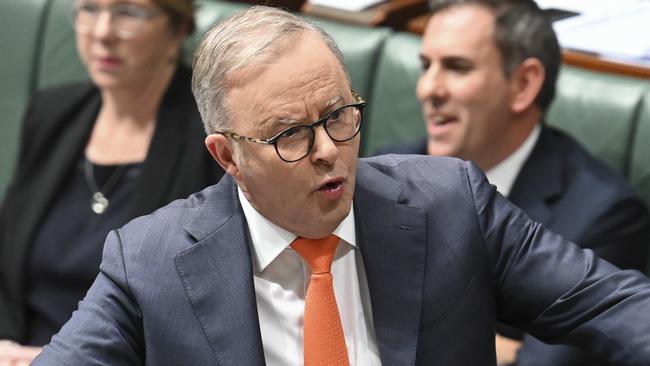
Having few friends beyond those industries that stand to benefit, the Future Made in Australia Act has found fewer friends in parliament. This is a serious setback for the Prime Minister and Labor’s political agenda. It also complicates the government’s election spending plans. It’s not dead yet but its life is slipping away.
While failure to pass the legislation won’t necessarily stop it committing to projects under a loose FMIA banner – it has already committed more than $1bn – it will be forced to do so without the integrity and national interest framework the legislation was designed to put around what the Coalition has described as a slush fund for friends of Labor.
Treasury was never a fan of the idea of throwing piles of cash around. The legislation gave Treasury secretary Steven Kennedy at least some comfort that there would be guardrails. Without the guardrails, it becomes just what the Coalition has warned.
It is unsurprising the Coalition on Tuesday formalised its opposition to the legislation. It wants the funds reallocated for its own election agenda. It is probably equally unsurprising the Greens joined the chorus and threaten to block it as well. If both follow through, ironically on ideologically diametrically opposed grounds, the legislation dies in the Senate.
Labor’s mock outrage at this perverse nexus demonstrates how frustrating the politics has become for Albanese.
Opposition Treasury spokesman Angus Taylor has identified about $4bn in spending in the coming year alone that appears to be attached to the legislation, and can be allocated at the discretion of the minister. On principle, Liberal opposition is based on a rejection of throwing taxpayer money at uncompetitive industries.
The Greens, on the other hand, are using it once again to force the government into adopting a wish list of silly ideas Labor could never support. Tying in repeated demands for an end to coal and gas is an absurd and tired story.
In the end the Greens may well capitulate, as they did over the Housing Australia Future Fund. In the meantime, they will seek to exact a political price. So Albanese faces a choice – appease the Greens or jettison the legislation.
The second option, however, risks delegitimising every dollar spent under a directionless FMIA banner and a fund devoid of scrutiny. It effectively kills it as a political idea. At a time when political victories are few and far between for the government, it can ill-afford to risk losing its economic and clean energy flagship. The Coalition would argue the country can’t afford it surviving.




The centrepiece of Anthony Albanese’s second-term election agenda has just been taken out behind the Senate shed and quietly put down.